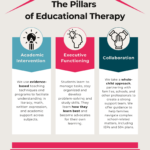No products in the cart.

Transitioning from middle to high school is a major milestone. For many students, it signals a move toward greater independence, more demanding academics, and new opportunities to develop important life skills like decision-making. While this shift can be both exciting and a bit overwhelming for students and their families, there’s no need to stress. To help you feel more prepared and confident as you begin this new chapter, here are some tips to guide you through the transition.
Familiarize Yourself with the School’s Layout
Before the first day, take a walk around the school to familiarize the student with the physical space. Show them where the bathrooms, offices, and classrooms are located. If possible, they can even check out seating arrangements in their classrooms or find out where they’ll be eating lunch. This can help reduce first-day anxiety and give your student a sense of comfort when navigating the building.
Meet your Teachers
Getting to know your teachers before school starts is a great way to build connections and ease any nerves. For students transitioning to a new school, meeting teachers can be especially helpful. It’s also a chance to ask questions about homework expectations, classroom rules, and any concerns you or your student may have about the year ahead.
Know what Emotional Supports are available
High school often brings new social dynamics, and it’s not uncommon for students to face emotional challenges. It’s important to be aware of the resources your school offers to support mental health. Many high schools have counselors, therapists, or social workers who can provide a safe and welcoming space for students to talk through difficult emotions. Encouraging open communication with trusted adults can make a big difference in helping students navigate these challenges.
Know what Academic Supports are Available
The academic demands in high school can feel overwhelming at first, but there are often systems in place to help students be successful. Help your student become familiar with available resources like tutors, after-school office hours, or study groups. Encourage them to practice self-advocacy by asking questions in class or emailing teachers when they need clarification or additional support. Building confidence in seeking academic help is a critical skill they need for high school and beyond. As a parent, it’s natural to feel a bit nervous and want to step in but remember: helping your child develop the ability to ask for help independently will empower them to become more confident, self-sufficient adults.
Know what Executive Functioning Supports are Available
Executive Functioning support or coaching helps students identify challenges, set goals, and develop a personalized plan for success in high school. Key skills addressed include time management, study strategies, organization, planning, test-taking techniques, stress management, motivation, and self-advocacy—essential tools for thriving amidst the increasing demands of high school. Your school might offer a study skills class, or you could consider working with an Educational Therapist or Specialist for tailored, one-on-one executive functioning support.
Make Connections
Social connections are a vital part of the high school experience. Encourage your student to get involved in clubs, sports, or other extracurricular activities to meet new people and build friendships. Being proactive about socializing can help them feel more at home in their new environment.
Be Patient
Adjusting to a new school environment takes time. It’s normal for students to experience bumps along the way as they adjust to new routines and expectations. Keep in mind that things may not always go smoothly at first, and that’s okay. With patience, support, and time, your student will find their rhythm and feel more comfortable navigating high school life.
Remember, the transition to high school is a big step, but with the right mindset and preparation, it can be an exciting and rewarding experience. At Strategies for Learning, our clinicians are here to support both parents and students throughout this journey. Contact us to learn more!
Written by Joi Ward, SfL Clinician, M.Ed, MA







No comment yet, add your voice below!